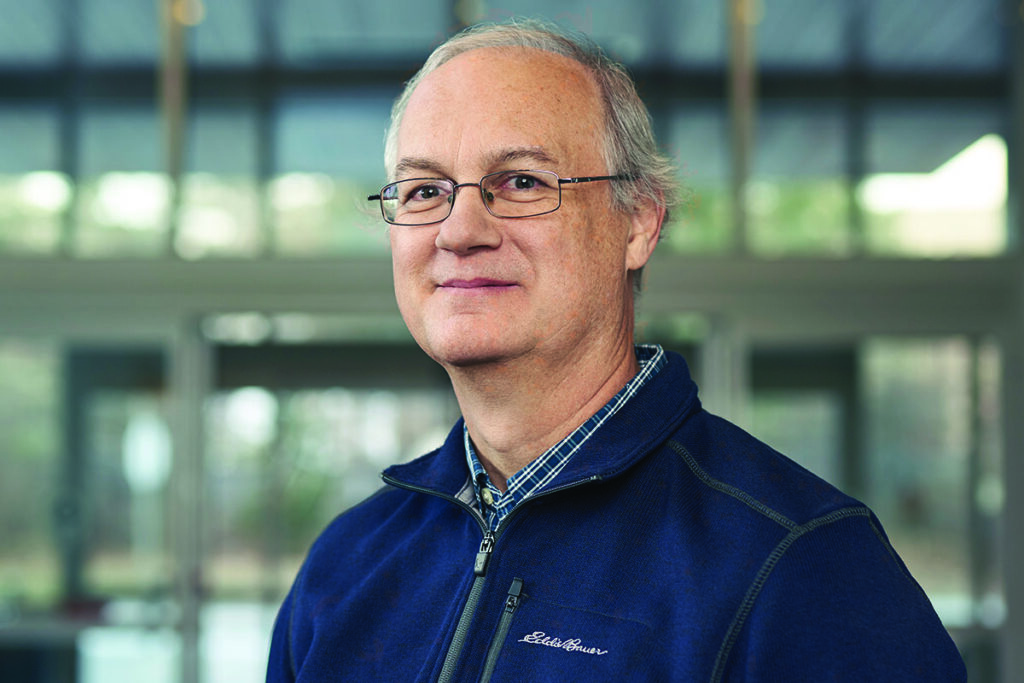From balance sheets to belly laughs: An accountant’s guide to comedy
An established taxation researcher with expertise in non-profit foundations, accountability, and governance, François Brouard (Professor, Accounting) is also a leading authority on Quebec’s comedy scene and the editor-in-chief of the peer-reviewed journal SÉRIEUX? Humour: Savoirs et pratiques. Since 2014, he has been active in the Groupe de recherche sur l’industrie de l’humour (GRIH), a research group he co-founded that focuses on Quebec’s francophone comedy industry.

Researchers find inspiration in all kinds of places. For example, François Brouard traces his research about francophone comedy back to a Christmas present he received a decade ago. It was a two-part book about Les Cyniques, a Quebec comedy group from the 1960s and 70s with a Monty Python-esque style of humour. One part of the book contained scripts from the group’s sketches. The other part, written by academics, analyzed Les Cyniques’ treatment of various social subjects.
Conspicuously absent from the book was consideration of Les Cyniques from a business perspective despite group’s immense popular and commercial success.
“In both French and English, most of the people who look at comedy look at the content – the type of jokes, the writing – and not at the business side, but comedians are essentially entrepreneurs. Comedy is not only an industry; it is one of the most profitable industries in our cultural landscape.”
Since no one was really focusing on the business of comedy, and since he was happy to take on a subject sure to appeal to a broader audience than his usual research, François decided to step up to the plate.
Data collection was an immediate challenge. There was no registry of comedy shows, venues, performers, or writers, much less a system that would make it possible to filter and analyze subgroups within the industry for comparative purposes. As a result, François began by mapping the francophone comedy scene using the same ecosystem framework he has applied to such other contexts as sports foundations and Canadian social enterprises.
It was a laborious process, made more difficult by the range of venues that host stand-up comedians. Comedy clubs are a relatively recent development, especially in Quebec, so François had to identify venues on a theatre-by-theatre basis.
“Some theatres I knew about because they’re close or well-known or because I attended shows there. But what venues hosted comedy shows in, say, Chicoutimi, Quebec? I had no idea, so I had to look at the different cities across the province to identify theatres and capture information about venue size, frequency of comedy performances, ticket sales, and so on.”
And that was just the beginning. He also tracked variables related to demographic information, educational background, popularity, and affiliated professional organizations.
Thanks to a research grant from the Centre for Research on Inclusion at Work (CRIW), François was then able to conduct a survey to generate additional knowledge about francophone comedy. His collaboration with two leading comedy-related organizations in Quebec – one that brings together members of the industry, Association des professionals de l’industrie de l’humour (APIH), and another that provides industry-related training, Ecole nationale de l’humour (ENH) – ensured the survey was distributed among as many stakeholders as possible while also setting the stage for future collaboration.
The massive dataset François compiled has informed cultural and labour analyses. For example, Compétence Culture, a Quebec organization dedicated to supporting the training needs of the nearly 180,000 people employed in the province’s arts and culture sector, drew upon François’s data for their 2022 report on the comedy industry.
Moreover, a current collaboration with the APIH, ENH, Bibliothèque et archives nationales du Québec (BAnQ), and Observatoire de l’humour (OH, which brings together people from comedy research and practice) is sure to facilitate francophone comedy research for generations to come. Supported by the BAnQ, the team is working with an archival expert to develop a guide to all of the BAnQ’s holdings pertaining to comedy. Among other things, this guide will help structure the various records of individuals and organizations related to the comedy industry, making it easier for people to access the records of a specific company or to compile and analyze information about performances at a given venue. This work will also help team members themselves as they continue to advance their research program.
Having developed a comprehensive understanding of the francophone comedy industry through his collaborations and research, François has a couple of suggestions for would-be comedians hoping to make it big.
“First, remember that in building your career, you’re building a business, so you need to run it like a business.”
That means using social media handles to build a coherent and recognizable brand. François suggests comedians stick with their names (rather than something jokey like “Myfaceisfunny”) so that people can find their accounts easily. His other suggestion? “Think about diversifying beyond stand-up to counterbalance the relatively small linguistic market. By branching out into radio, TV, or film, French comedians can earn a living for longer without constantly having to renew themselves.”
